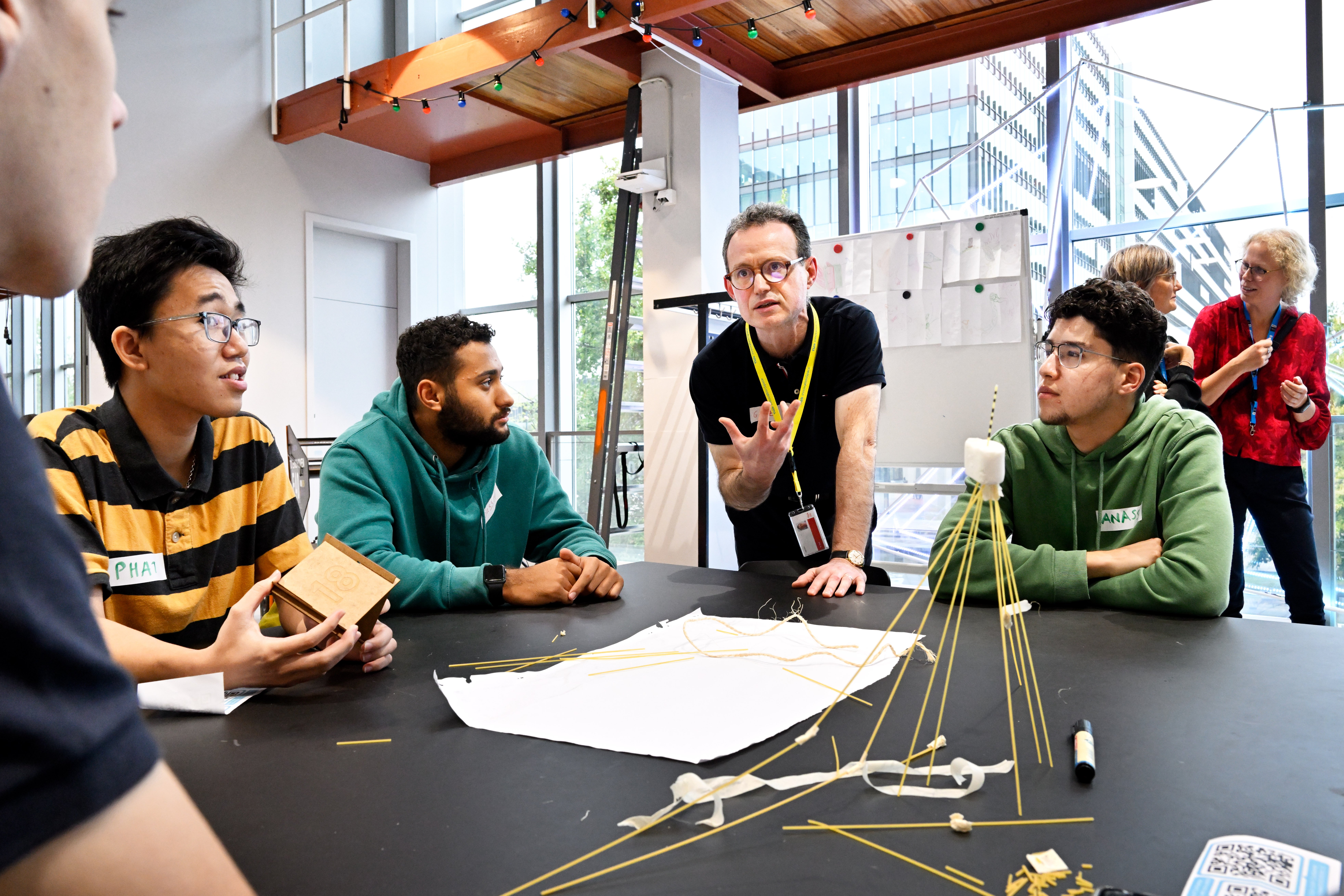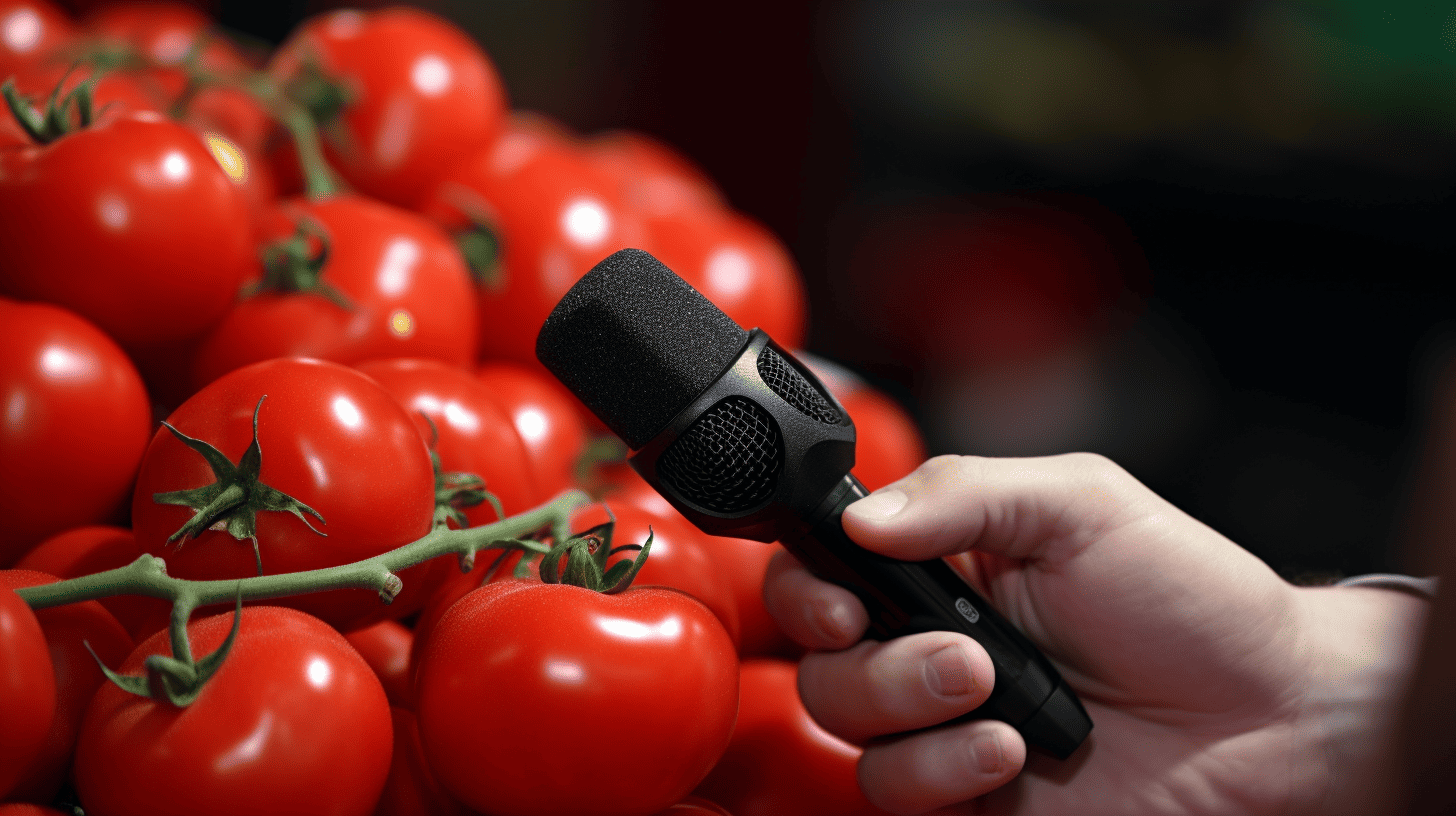
In a weekly column, alternately written by Maarten Steinbuch, Carlo van de Weijer, Daan Kersten and Lucien Engelen, E52 tries to find out what the future will look like. All four contributors are – in addition to their ‘normal’ groundbreaking work – linked to the SingularityU The Netherlands, the organization that focuses on spreading knowledge about technologies that can provide solutions to the problems of our time. This Sunday, it’s Lucien Engelen‘s turn.
 Living in a world of change with tons of opportunities can get pretty complicated as well. Opportunities on the technological frontier will challenge societal aspects we really have to address, we have to make choices.
Living in a world of change with tons of opportunities can get pretty complicated as well. Opportunities on the technological frontier will challenge societal aspects we really have to address, we have to make choices.
What:
Recently I had the privilege of being submerged in a training of SingularityU at NASA Ames research park in the US. Being faculty since 2011 at their Exponential Medicine track chaired by Daniel Kraft, I now also will ‘serve’ as member of the faculty for the Dutch hub ‘SingularityU The Netherlands’, not surprisingly on global Digital health(care).
Together with most of my fellow faculty we were submerged into a broad program on all kinds of exponential trends in the world of mobility, artificial intelligence, energy, biotechnology and of course health.
Core US-faculty members guided us through their meadows of knowledge, supported by a great US staff and one of the founders of the Dutch hub COO Maarten den Braber, with the intent to have the tools to start creating a curriculum for the “Dutch” version of the Executive program.
In my field of health(care) innovation digital health is at the brink of breaking through. Technology is present, but often is in the process to be validated for use at scale. Many (empowered) patients want to experience their healthcare like every many other process in their life: with logical pathways, as a flow as opposed as separate non connected blocks and on par with the rest of society. So with video calls, digital recipes, access to their data and as near to or in the comfort of their own home as possible.

We had great discussions on many topics such as food with my colleague Dutch faculty member Mark Post (MD, PhD) already has been faculty for the Global Solutions Program, who has created world’s first cultured hamburger. We talked about the absolute necessity to have an alternative to our animal based meat as by 2040 we will run out of earth’s capacity to accommodate the livestock required for satisfying the global demand for meat.
To our, certainly my, surprise, the costs of public transportation appear to be much higher than for instance cars and planes, as explained by Carlo van de Weijer (PhD). And with vehicles quickly becoming inherently safe and clean, classical public transport will face some difficult times. He foresees a huge role for “mobility as a service” where private lease, car- and ride-sharing services will offer a much better and cheaper alternative. He calculated replacing rail with asphalt would deliver a far better and cheaper option, and the replacement would have earned back within a year.
Eyeopening debates with Melanie Rieback (PhD) who described the evolving world of cybercrime, and suggested how defenders should build a highly collaborative ecosystem, sharing tools, threat intelligence, and incident data.
Professor Maarten Steinbuch (Ir. PhD) raised eyebrows by challenging us questioning who is in control in, say 20 years from now: robots or we? The deeper question then is what makes us a human and with the fast advent of Artificial Intelligence: can a robot possibly be designed with actually having emotions?
Fellow health faculty Kris Verburgh (MD) talked about new developments in diagnostics and treatments, like artificial intelligence, personal genomics and immunotherapy. He described some paradigm shifts that are going on in medicine, like thinking beyond the genome, the new focus on prevention and how addressing aging will transform health(care).
Daan Kersten (MSc) gave us great insights in his world where digital manufacturing allows industrial value chains to become asset light, open and integrated at the same time. He shared the example of his own company taking a moonshot of developing 10x instead of 10% improved 3d metal printing equipment.
How:
SingularityU’s Mission is
“to educate, inspire and empower leaders to apply exponential technologies to solve humanity’s grand challenges.”
Our endeavor is ‘how’ to leverage our knowledge and network to solve big problems we face now or in the (near) future and to ‘help’ those leaders. Great ideas floated around within the Dutch faculty and the US SingularityU team in building a Dutch program and helping to build a global community.
Despite all the great opportunities we see in current and upcoming technology, time and time again topics like ethics, philosophy popped up including what I like to call ‘the grand debate’. We need to debate what boundaries of the use of all of these technologies are, if any.
Let’s take CRISPR Cas 9 as an example for a moment. This is basically a ‘word processor’ for DNA, amongst others to fix faults. Great news and opportunities ahead to also cure diseases. On the other hand it could also be used to create ‘designer babies’.
The team that created the breakthrough in this technology suggested a moratorium to pause for a year or so, to debate the possible uses, create guidelines and have a societal debate. Meanwhile in less regulated jurisdictions scientists started actually using CRISPR in embryos. I think Global guidelines are needed for technology that can affect world’s population at its core.
Why:
Our generation is in one of the most interesting positions ever in history. We didn’t had the opportunity to change our own future as impact-full as right now. We may be able to change pathways of life, never before we had so many data available. Technologies from ’science fiction’ have become a reality.
Let’s not spoil it by not taking the time to focus as well on flip sides, ethics and the more philosophical side of the changes these awesome opportunities for humanity bring to the table as well. Collectively as Dutch faculty we advised to make thát a Global Grand Challenge as well, we will be enriching our Dutch group to address these aspects as soon as possible. September 12th & 13th at the SingularityU The Netherlands Summit, we strive to start addressing these amongst the great opportunities and our fields of expertise and topics.
Yes, we will make mistakes in translating this new technology into society. And yes, we fail on aspects of that. Neglecting the opportunity by holding on to the status quo, is not an option either in my honest opinion.
Sometimes life is complicated …
Main photo (c) Jethro Lawrence
Next week: Maarten Steinbuch









